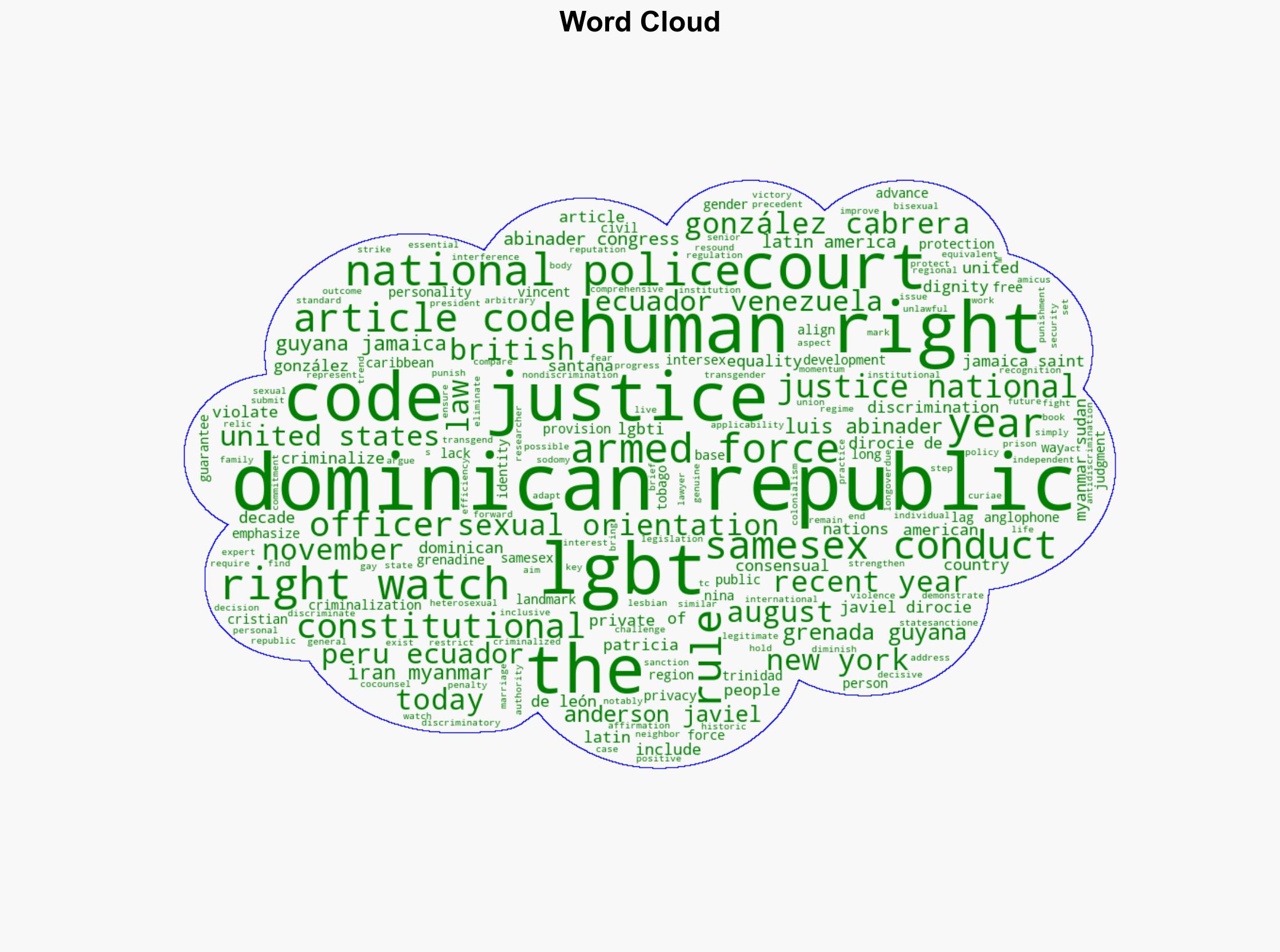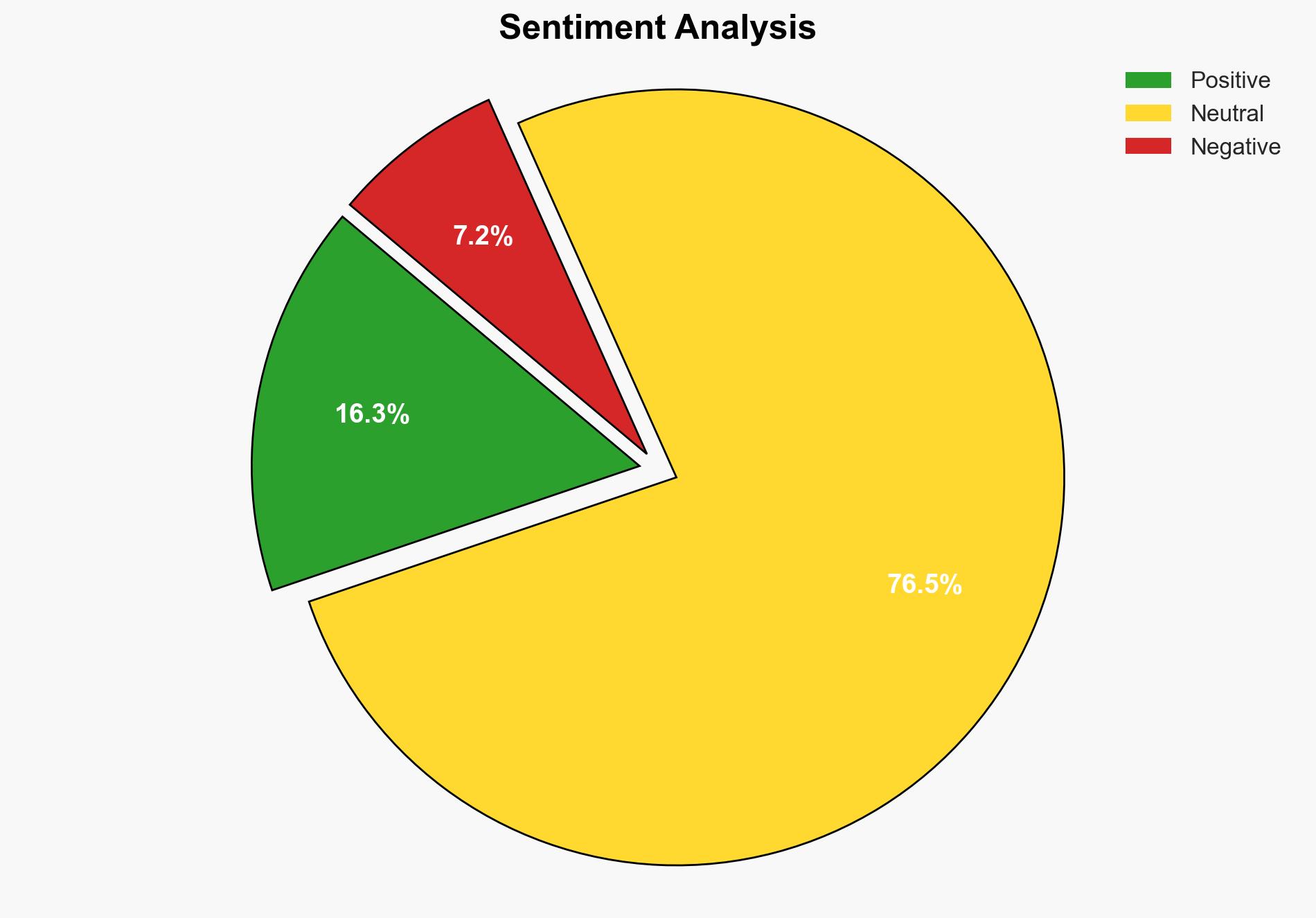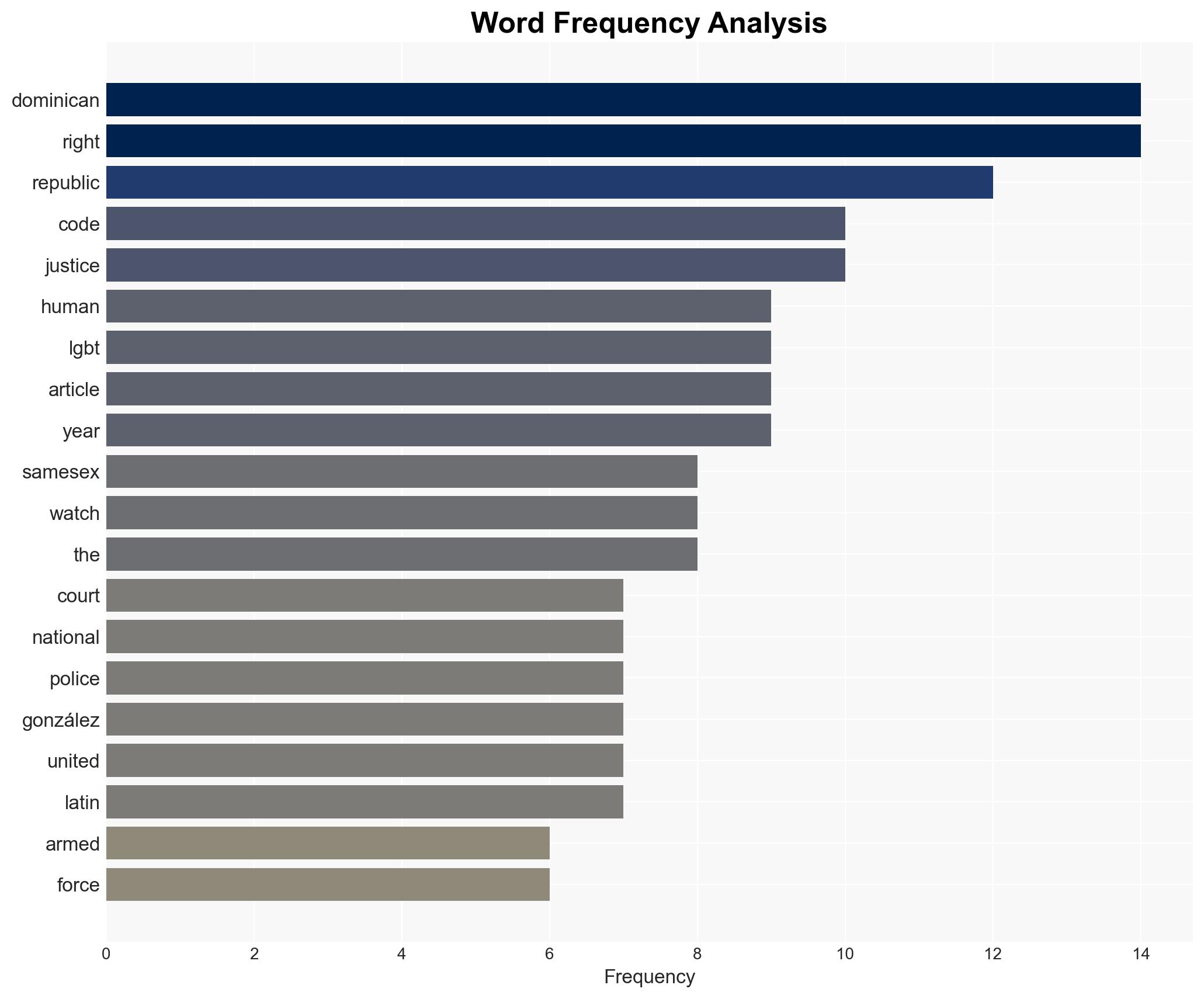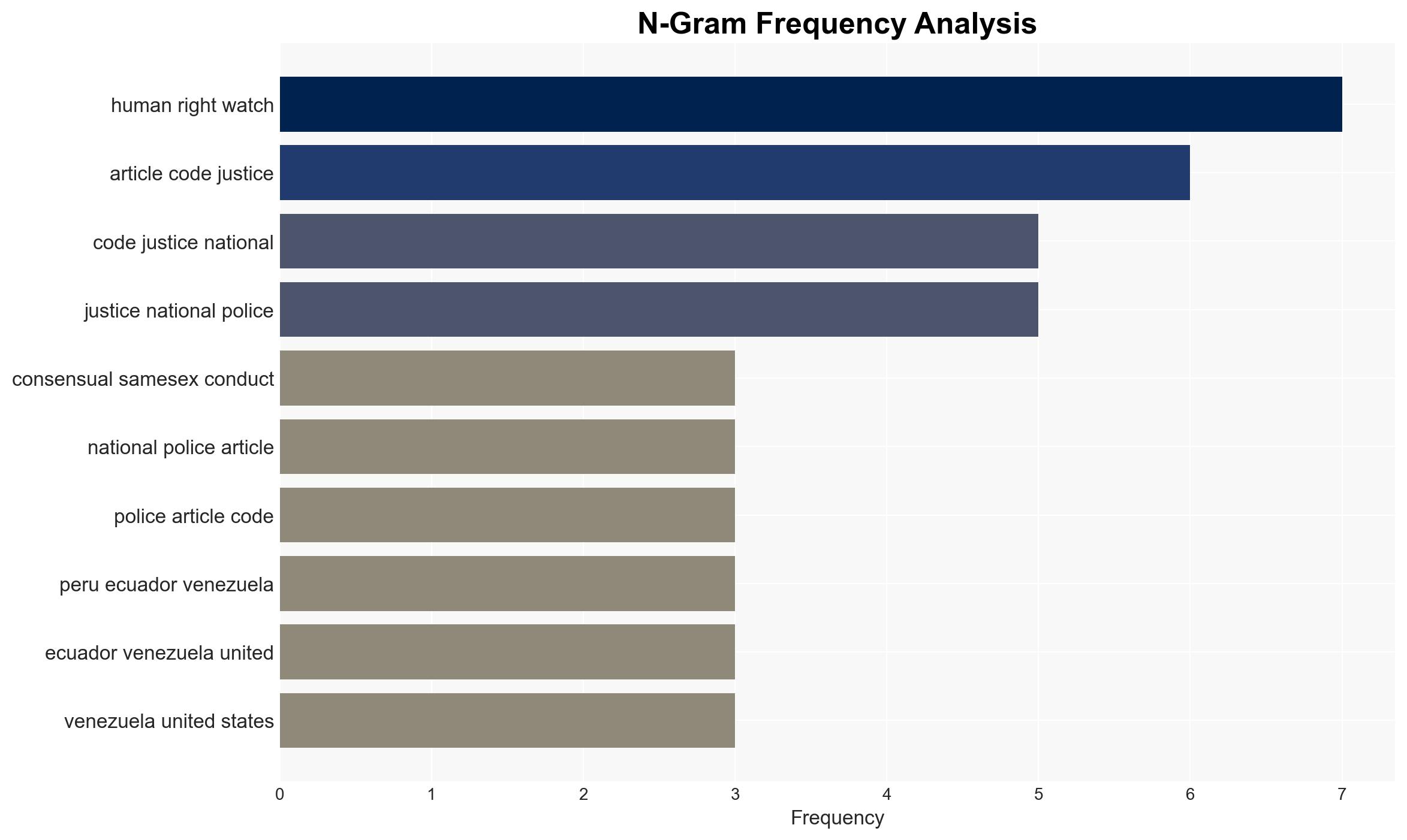Dominican Republic Court Ends Security Forces Gay Sex Ban – Human Rights Watch
Published on: 2025-11-20
AI-powered OSINT brief from verified open sources. Automated NLP signal extraction with human verification. See our Methodology and Why WorldWideWatchers.
Intelligence Report:
1. BLUF (Bottom Line Up Front)
The Dominican Republic’s Constitutional Court ruling to end the ban on same-sex conduct within security forces is a significant step towards equality, with a moderate confidence level that this will lead to broader legislative changes supporting LGBT rights. Recommended actions include monitoring legislative developments and supporting advocacy efforts to ensure comprehensive anti-discrimination laws are enacted.
2. Competing Hypotheses
Hypothesis 1: The court ruling will catalyze further legislative reforms in the Dominican Republic, leading to comprehensive anti-discrimination laws and greater protection for LGBT rights.
Hypothesis 2: The ruling will face significant backlash from conservative sectors, stalling further legislative progress and potentially leading to increased societal polarization.
The first hypothesis is more likely due to regional trends towards inclusivity and the court’s alignment with international human rights standards, despite potential resistance from conservative groups.
3. Key Assumptions and Red Flags
Assumptions: The ruling reflects a genuine shift in institutional attitudes towards LGBT rights. Regional trends will influence national policy positively.
Red Flags: Strong opposition from conservative political and religious groups could undermine progress. Potential for symbolic compliance without substantive policy changes.
4. Implications and Strategic Risks
The ruling could inspire similar legal challenges in other Caribbean nations, potentially leading to regional shifts in LGBT rights. However, backlash could manifest in political or social unrest, particularly if conservative factions mobilize against perceived erosion of traditional values. Economic implications could include shifts in tourism dynamics, either positively or negatively, depending on public perception.
5. Recommendations and Outlook
- Monitor legislative developments and public sentiment to anticipate potential backlash or support for further reforms.
- Engage with local and international human rights organizations to support advocacy for comprehensive anti-discrimination laws.
- Best-case scenario: The ruling leads to comprehensive anti-discrimination legislation and improved societal acceptance of LGBT individuals.
- Worst-case scenario: Significant backlash leads to increased societal division and potential rollback of rights.
- Most-likely scenario: Gradual legislative progress with intermittent resistance from conservative sectors.
6. Key Individuals and Entities
Cristian González Cabrera, Human Rights Watch; Anderson Javiel Dirocie de León, Lawyer; Patricia Santana Nina, Co-counsel; President Luis Abinader.
7. Thematic Tags
Regional Focus, Regional Focus: Caribbean, Latin America
Structured Analytic Techniques Applied
- Causal Layered Analysis (CLA): Analyze events across surface happenings, systems, worldviews, and myths.
- Cross-Impact Simulation: Model ripple effects across neighboring states, conflicts, or economic dependencies.
- Scenario Generation: Explore divergent futures under varying assumptions to identify plausible paths.
Explore more:
Regional Focus Briefs ·
Daily Summary ·
Support us





